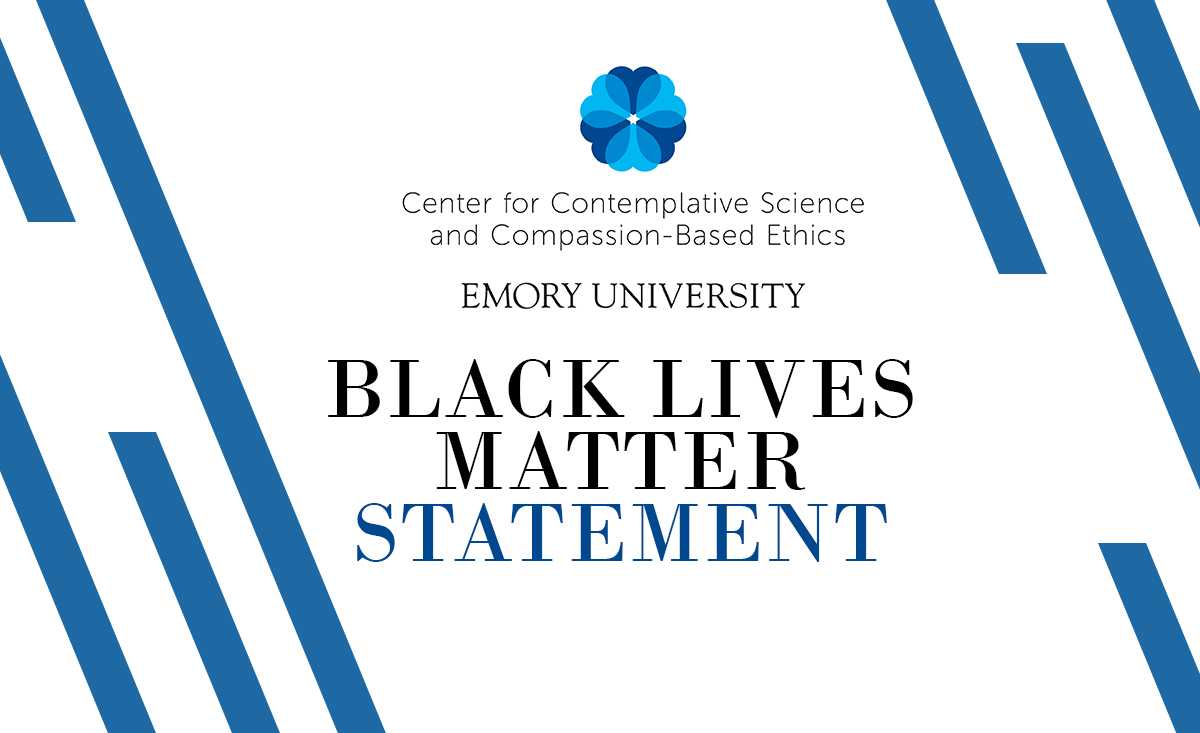
Black Lives Matter: Seeking a Compassionate and Ethical World for All
The killing of George Floyd, Breonna Taylor, Ahmaud Arbery, and so many other Black Americans, and moreover the underlying and pervasive racism that enables these and many other acts of abuse, violence, and hate both large and small, call for a strong response. We at the Center for Contemplative Science and Compassion-Based Ethics join with all those who are working to end the scourge of racism and oppression in all their forms.
Our center is composed of individuals from different cultural, racial, ethnic and religious backgrounds. We are a diverse community united by a shared vision: “a compassionate and ethical world for all.” This is a long-term vision, but we are working actively to achieve it every day -- it cannot wait. Through awareness of, connection with, and compassion for ourselves and each other, we can begin to recognize, challenge and transform those aspects of the systems that perpetuate apathy, violence, and injustice. The dehumanization of Black people is a blow to this amazing power to connect compassionately with each other, but it does not weaken our resolve.
What we know is that education, non-violent action, and compassion all have a transformative power. Education has the power to bring awareness. As Nelson Mandela wrote: “No one is born hating another person because of the color of his skin, or his background, or his religion. People must learn to hate, and if they can learn to hate, they can be taught to love, for love comes more naturally to the human heart than its opposite.”
Non-violent action has the power to engage that awareness and, through the lens of compassion, can effect change faster and far more sustainably than violence. Non-violence opens dialogue and paves the way for reconciliation. Dr. Martin Luther King, who hails from our own city of Atlanta, Georgia, drew from Mahatma Gandhi, who drew from the same ancient Indian tradition of nonviolence that our programs and His Holiness the Dalai Lama draw from. Although Gandhi, Mandela, and King never met, they found a way to lead through compassion in the face of pain, rage, uncertainty, and death.
As a part of Emory University, we share and affirm this statement by our president, Claire Sterk: “The Emory community stands for justice in all aspects of our mission, and when confronted with hatred and prejudice, we must speak out. Emory respects the dignity and value of all human beings, and our community will continue to engage in conversations that matter, no matter how difficult the dialogue, so that together, we might seek a more just and equitable world for all.”
The work continues for all of us, especially those of us who are newly aware of the great suffering of our brothers and sisters. A compassion-based ethics requires that we re-commit ourselves daily (and not only in times of crisis) to promoting a better society, based on equality, kindness and respect for all. We know that together we are strong, together we are beautiful, and together we are compassionate.
Signed,
The Staff of the Center for Contemplative Science and Compassion-Based Ethics
Carol E. Beck
Tsetan Dolkar
Tyralynn Frazier
Steven Goard
Timothy Harrison
Michelle Heker
Karma Tenzin Khangsar
Mikkel Kristiansen
Dadul Namgyal
Lobsang Tenzin Negi
Rama Sow-Niang
Brendan Ozawa-de Silva
Tsondue Samphel
Lindy Settevendemie
Amber Sims
Zipporah Slaughter
Hannah Smith
Tenzin Sonam
Christa Tinari
Dawa Tsering
Ofer Yifrach

